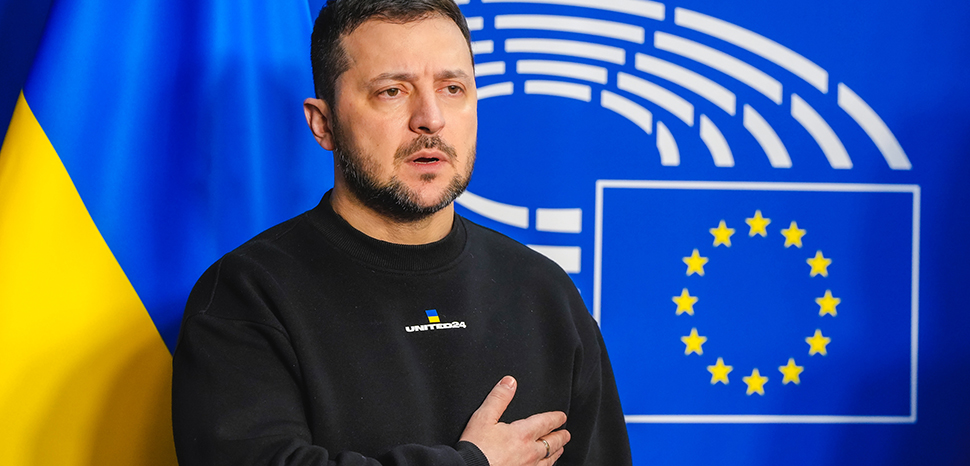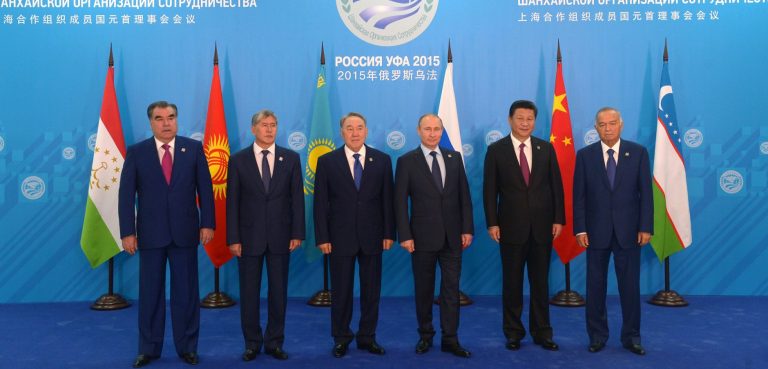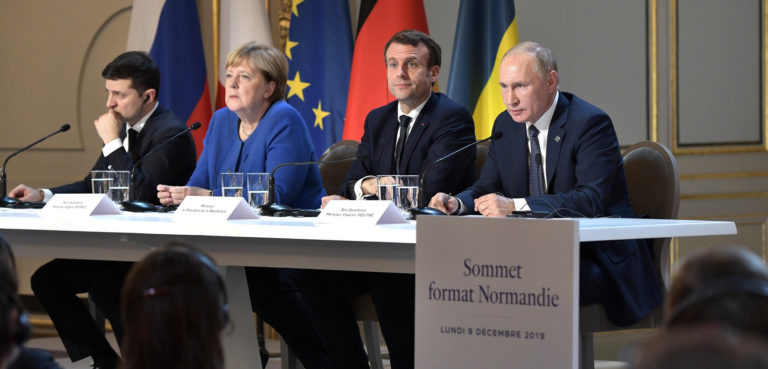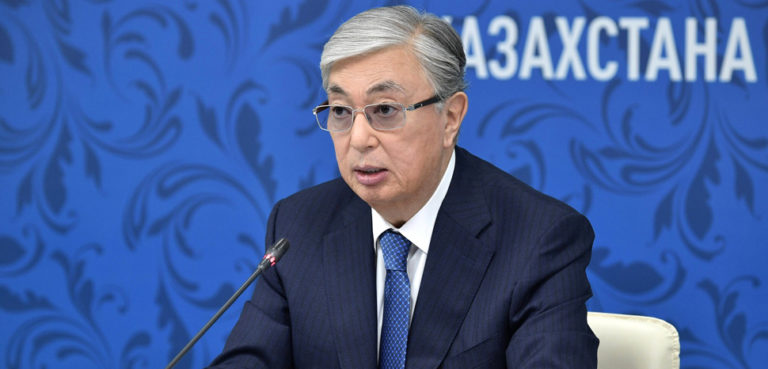This summer marks a year since Ukraine became an official candidate for European Union (EU) membership under an accelerated process following Russia’s invasion. Kyiv currently sits at the doorstep of the negotiations stage, which could start this year according to EU officials. Historically, this stage is the longest, most technical, and bureaucratic part of the process, requiring extensive reforms under the “Copenhagen criteria” – a set of political, legal, and economic membership conditions.
In June 2022, the European Commission recommended granting Ukraine candidate status with an “understanding” that Kyiv must implement seven steps to strengthen anti-corruption and rule of law standards. Kyiv recently stated that it has complied with each of these conditions. The decision now lies with the EU, who must determine if Ukraine fulfilled basic requirements before the rigid negotiation process can start.
While Ukraine’s progress from applicant to candidate status was rapid, advocates should temper expectations for subsequent steps toward membership; they will not be as swift or simple. Kyiv could be caught in pre-negotiation limbo akin to current Western Balkan EU hopefuls. For reference, it took Belgrade and Podgorica about two years to start negotiations after reaching candidate status. Tirana waited six years to open formal negotiations after becoming a candidate in 2014, while Skopje sat idle for 15 years before opening talks with Brussels. Each nation had a particular set of challenges prohibiting their progress, but these roadblocks were nowhere near Ukraine’s predicament of fending off an invading military prior to starting negotiations.
The EU’s new accessions methodology, revised in 2020, is intended to “make enlargement a more credible, predictable, and dynamic.” But this modified approach likely won’t yield faster results for Ukraine or current candidates. EU accession is grounded in “fundamentals,” such as technical, legal, and bureaucratic reforms including rule of law, functioning democratic institutions, and public administration reform. Chapters covering fundamentals are opened first, closed last, and a challenge for current EU candidates with systemic corruption and political inefficiencies.
Moreover, Ukraine’s accelerated process to candidate status was – in part – a product of existing circumstances surrounding Russia’s invasion. This fact does not diminish Ukraine’s achievement, its political resolve to join the EU, or the progress made toward strengthening ties with the EU prior to and during the invasion. It merely underscores that aspiring EU nations with better political and economic conditions waited much longer to reach candidate status. It also leads to another question for many observers: Will the EU accelerate Ukraine’s membership in similar fashion to its candidacy given the existing geopolitical challenge?
Geopolitical Considerations and Technical Realities
EU leaders cautioned that Ukraine’s accession process will take time, implying that technical criteria is the key to membership. However, one cannot ignore the geopolitical undercurrents or the EU’s political will to shepherd Ukraine’s application. This is not a question of whether Ukraine deserves to join the EU – rather, it’s a series of questions regarding its readiness to join, and whether the EU will overlook required reforms in the light of geopolitical challenges. Moreover, how will the Western Balkans – who have been in various stages of the accessions process for over a decade – interpret Brussels’ decisions if Ukraine jumps the line?
The technical nature of accession negotiations, comprehensive reforms, and the bloc’s prior enlargement fatigue has led some Western Balkan nations to ponder if membership is a distant – or even likely – reality. The pace has contributed to noticeable declines in popular support for the EU in some candidate countries. With this context in mind, how will the EU balance geopolitical considerations and candidates’ capacities for reform?
Accelerating Ukraine’s negotiations by placing greater importance on geopolitical circumstances, rather than technical reforms, could further alienate other EU hopefuls. Given the Balkan candidate’s experience with negotiations, one can question whether technical criteria or geopolitical considerations take precedence in membership talks. For example, Bulgaria’s and Romania’s capacity to join was greatly scrutinized, but their eventual membership also brought a “stable political and economic anchor in a region surrounded by unstable neighbors” while closing “geographic divisions left over from the Cold War.” Despite serious issues related to crime, rule of law, and corruption, both nations entered the EU, albeit with special cooperation and verification requirements. This exemplifies the interplay of readiness, based on technical criteria, balanced with the strategic considerations involved with integration.
While Russia’s invasion has renewed the EU’s enlargement initiative and opened debates about Brussels’ role as a geopolitical actor, the accession process for candidates should remain grounded in their ability to enact necessary reforms and standards. The EU’s strategic challenges related to the Russia-Ukraine war are significant but should not be the primary factor for Kyiv’s eventual membership. Prioritizing Ukraine’s EU path for strategic reasons while overlooking the desire of Western Balkan nations to join the bloc would further damage the EU’s credibility and erode trust in the accession process.
The EU must also weigh its capacity to “integrate new members.” There are institutional impacts associated with membership, which necessitate “reforming decision-making procedures.” Moreover, Ukraine and the Western Balkans would be among the poorest member states across a variety of economic measures. What economic and financial challenges would Kyiv’s rushed membership create for both the EU and the Ukrainian economy? If reforms are overlooked, Kyiv will find it harder to succeed in the new club and Brussels will face additional hurdles to fully absorb Ukraine and its existing problems.
The EU is faced with a series of tough questions compounded by the war’s strategic challenge. Brussels must find a way to implement its enlargement initiative while balancing candidate’s ambitions without sacrificing the realities of reform that are sure to impact the pace of negotiations.
EU Accessions During War
Russia’s invasion further complicates Ukraine’s EU path. While the invasion resulted in a positive outcome for Ukraine’s EU application initially, the war’s resolution will dictate how quickly Kyiv joins the club.
The term victory is somewhat ambiguous in the context of this conflict, but Russian could achieve a form of victory on the battlefield that would stall any hope of Ukraine’s EU future. Reliable predications suggest that Russia lacks the necessary capability to completely occupy Ukraine. But Moscow could achieve a limited “victory” where it realizes some of its strategic outcomes.
Russia’s potential victory would, by extension, accomplish the Kremlin’s strategic objective of decoupling Ukraine from the West. Bringing Ukraine back into its sphere of influence has been Moscow’s goal prior to 2014. In this case, the West’s effort, resources, and political support for Ukraine would be a sunk cost. To avoid this scenario, the West should continue to extend substantial military, political, and financial support to the Ukrainians.
Another potential outcome that could bring relative calm, but not lasting peace, is a ceasefire or armistice. This option would end active hostilities, creating a possibility for an eventual peace settlement to resolve underlying causes of the conflict. However, a brokered ceasefire ironed through an agreement could also serve as a basis for a frozen conflict – rather than a prologue to a negotiated settlement – where kindling resentment by warring sides becomes a foundation for renewed fighting.
Russia’s initial incursion in 2014 and recent escalation in 2022 is multifaceted, but partly rooted in Kyiv’s decision to further integrate and align itself with the EU and NATO. If current hostilities end along the lines of a ceasefire, Russia could always escalate once Kyiv begins to inch toward the West. Both Minsk Agreements saw repeated violations by both sides, ultimately failing to prevent the 2022 invasion. A ceasefire’s inability to achieve its strategic outcome can therefore be used as a tactical or operational pause under the guise of a good faith agreement to end hostilities.
Frozen conflicts have a way of thawing and igniting into fierce fighting, despite sustained periods of relative calm. The Second Nagorno-Karabakh conflict is a recent example of a decades-long spat reigniting after one side determined to resolve disputed territorial questions and achieve their strategic goals.
Whether a frozen conflict is ameliorated through an agreement or not, it would leave the door open for future fighting. Festering territorial disputes and unresolved questions related to Ukraine’s sovereignty would be underlined by persistent threats of renewed conflict. How would the EU weigh the risks of further integrating Ukraine under the implied threat of a frozen conflict? If this scenario materialized, the EU would have to weigh its options: continue integration efforts with Ukraine at the risk of renewed violence instigated by Russia or let the status quo of the frozen conflict prevail at the expense of Ukraine’s EU future. Ukraine’s EU membership path would be categorized by a lack of progress, frustrating policymakers.
Ukrainian Victory
A Ukrainian victory is the most desirable outcome for its membership goals. However, even if Ukraine manages to regain all or most of the disputed and conquered territory, including Crimea, its accession would not necessarily be quick. A post-bellum Ukraine would have to deal with the wounds of war, both physical and psychological. Kyiv would have to re-integrate parts of the country that haven’t been under its control since 2014 – a difficult and complex process. The Donbas and Crimea prefer Moscow’s influence over the EU and would be at odds with Ukraine’s Western orientation. Reintegrating contested regions and consolidating democracy would have to be based on rule-of-law and reconciliation. Retaliation, retribution, and refugee columns in the aftermath of winning back disputed territory through military means would be at odds with the most basic of EU values, complicating Ukraine’s membership goals.
A difficult post-war period of reintegration, reconstruction, and accessions-based reforms would require patience and dedication. It would also mandate steadfast and sustained Western financial and political support post-conflict, even if other priorities increasingly take precedence in EU capitals. Whether the West’s support continues unabated in this scenario is unknown, but it would be required to deter additional conflict and keep Ukraine on its EU membership path.
The technical difficulties of EU accession, evidenced in the experiences of Western Balkan countries, coupled with Ukraine’s active conflict, make the prospect of speedy EU accession unlikely. This does not mean that Ukraine shouldn’t join the EU. It only highlights the reality of EU membership, which require comprehensive and far-reaching reforms on the part of candidates before they can join. These reforms should not be overlooked as they risk new members’ potential for success in the EU. The amount of financial support required to rebuild Ukraine will be extensive, while the responsibility of absorbing such a large country will not be easy for EU institutions. Brussels now has the difficult task of bringing in new members while balancing a myriad of factors that are sure to complicate its goals.
The views expressed in this article belong to the authors alone and do not necessarily reflect those of Geopoliticalmonitor.com.




